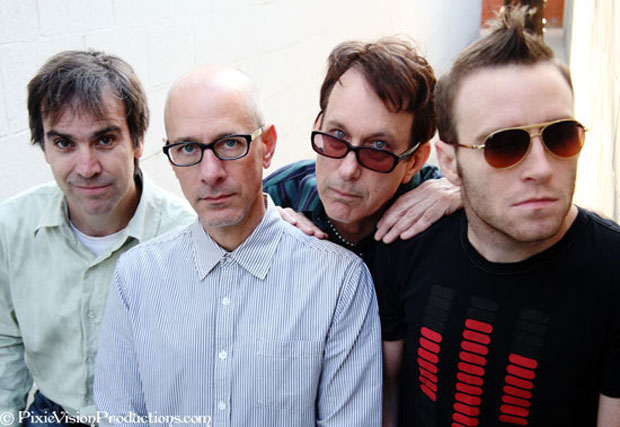
By his 22nd birthday, Dead Kennedys guitarist Raymond “East Bay Ray” Pepperell had already made an indelible impact on the music world.
The San Francisco band’s debut LP, 1980’s Fresh Fruit for Rotting Vegetables, marked the arrival of hardcore punk rock into the mainstream and has held up incredibly well, having been heralded by numerous publications as one of the genre’s essential works.
The seminal punk group hasn’t released new material since 1986, but East Bay Ray has been working as hard as ever over the past quarter-century. He recently took the time to talk with Guitar World about the first offering from his new project, East Bay Ray and The Killer Smiles, for what turned out to be a wide-ranging conversation.
“I really had fun writing and recording new music,” said the guitarist, who’s been back with Dead Kennedys since the band reformed in 2001 (sans original lead singer Jello Biafra) and started his new group with current Dead Kennedys singer Skip McSkipster (of Wynona Riders fame), bassist Greg Reeves and drummer Steve Wilson.
East Bay Ray and The Killer Smiles’ self-titled debut is due to be released September 13 on MVD Audio. Produced by Butthole Surfers guitarist Paul Leary, the 12-track set finds McSkipster singing about “personal relationships and politics” over East Bay Ray’s punchy riffs.
GUITAR WORLD: What got you and Skip writing together? What was it like going from touring with each other to writing and recording?
I’ve always been writing. We wanted to do it, so we started doing it and it started coming out better than we expected, so we carried on. It was an easy transition — from the sense that we had artistic standards, shall we say. We went back and forth and had a good give-and-take, just trying to make it better, and I think we did it successfully.
Get The Pick Newsletter
All the latest guitar news, interviews, lessons, reviews, deals and more, direct to your inbox!
In your mind, what’s the difference between Dead Kennedys songs and Killer Smiles songs?
There really are no new Dead Kennedys songs, but from my viewpoint, not a whole lot was different because I’m playing guitar in my own unique style. Of course, Skip is singing, and the lyrics are more towards personal relationships and personal politics rather than overt politics. We really don’t think change is going to come from the top-down — it’s going to come from how people treat their friends, family and co-workers. That’s more what the lyrics are about — they’re more poetic and artistic and less journalistic.
I don’t mean to put words in your mouth, but are you saying that there’s not going to be any new Dead Kennedys material in the near future?
[Laughs] No. This project actually started as Dead Kennedys, but we decided not to do that since the lyrics were different and we have a different rhythm section. Both Greg and Steve have filled in on Dead Kennedys tours, so I feel like we can get the Dead Kennedys sound, but like I said, the songs are different because it’s a different team of people. We decided at the beginning that it’s not going to be Dead Kennedys part — what would it be? — part six.
Where did the Killer Smiles’ name come from?
Actually, a friend of mine had it. We assessed the current situation, where peoples’ charisma is more important than the content you have. There’s a lot of incompetent phonies getting a whole bunch of time on TV and Twitter, and it’s kind of scary how everybody has an opinion now, but they really don’t know the facts. You’re entitled to your own opinion, but you’re not entitled to your own facts.
The name is kind of referring to the hypocrisy of how people are very nice and smiley on the surface, but underneath they don’t really have your interests at heart. It could be a person, it could be a corporation, it could be a politician, or it could even be a journalist. Present company excluded, of course.
Of course. You guys played South by Southwest this year. What was that like?
It’s a big circus there. The best part was that Skip and I were walking down the street and heard this band starting, and it turned out to be Foo Fighters playing a surprise show. We didn’t have our credentials yet, but we talked to a security guy who knew who Dead Kennedys were. They waved Skip and I in, so we watched Foo Fighters play and tried to find our way backstage.
They came back offstage and we figured we’d only go in for two minutes and say hello, but we ran into (Foos guitarist and hardcore veteran) Pat Smear and then (lead singer and survivor of D.C.’s hardcore scene) Dave Grohl grabs me and takes us backstage. We ended up talking for half-an-hour, and he said he had three musical idols — John Bonham, Paul McCartney and myself. I said, “Are you joking?” But one of the first shows he ever saw was Dead Kennedys in D.C. He said his aunt took him and it was the first rock show he ever saw. He’s a really down-to-earth guy, so it was very refreshing.
What kinds of gear have you been using at shows and in the studio?
I use the same thing as in Dead Kennedys. Right now, I’m putting together a Stratocaster-style guitar, although there’s not many Fender parts left on it. I like Seymour Duncan pickups and I’ve been using a Schecter S-1, Marshall 2000 DSL amp, Echoplex tape unit and Line 6 DL4. I don’t use a lot of pedals and I don’t use channel switching in Dead Kennedys, but sometimes in Killer Smiles.
After the recording and touring cycle is over, is the plan to go back to Dead Kennedys or do more Killer Smiles stuff?
I really had fun writing and recording new music. Touring is grueling — it’s a lot of hurry up and wait, so you have 23 hours of traveling and then you bounce around and play for one hour. Skip and I have already started a few new songs together, so hopefully this will do well enough that we can continue on. There’s some places that Dead Kennedys haven’t been to that I’d like to go to, like Cuba and China, but wherever Killer Smiles goes, that’s fine.
Well, you’re a very prolific man.
[Laughs] Well, I wouldn’t say that. Quality over quantity!
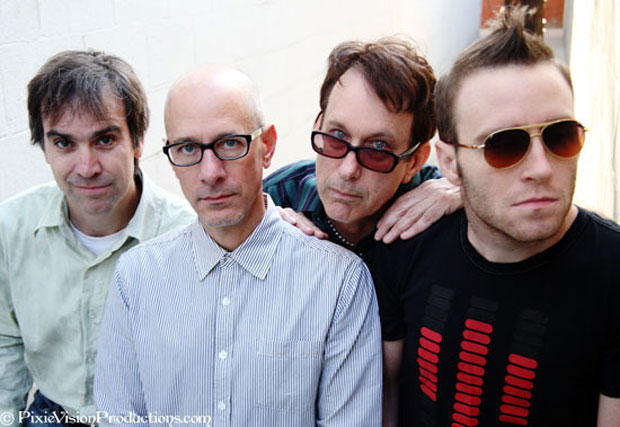
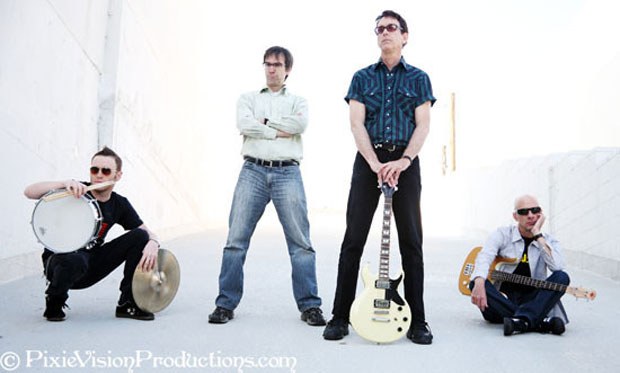
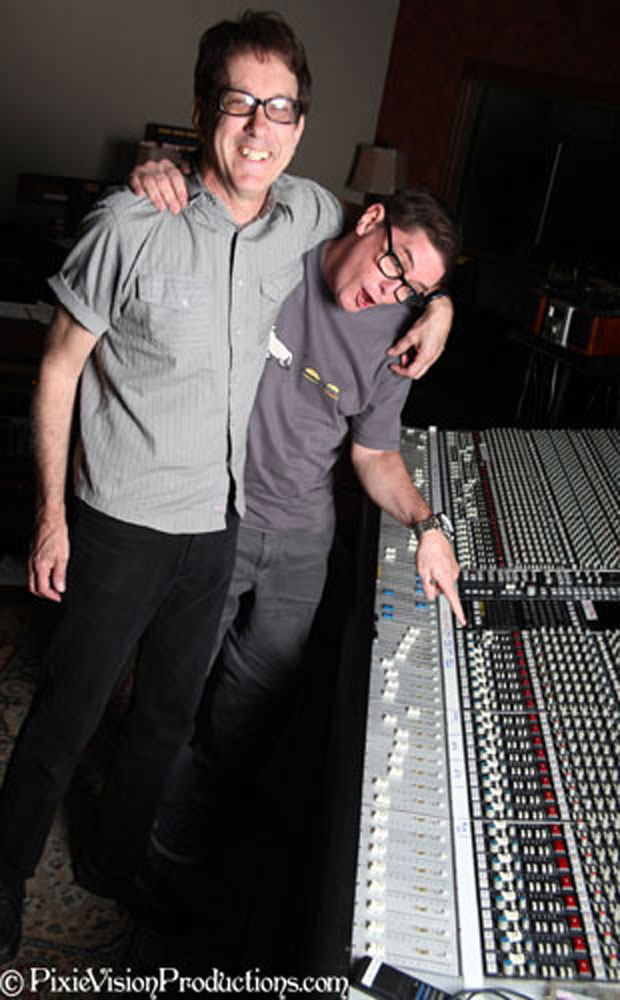
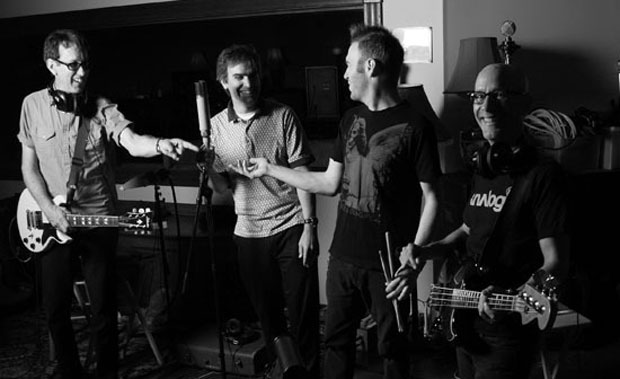
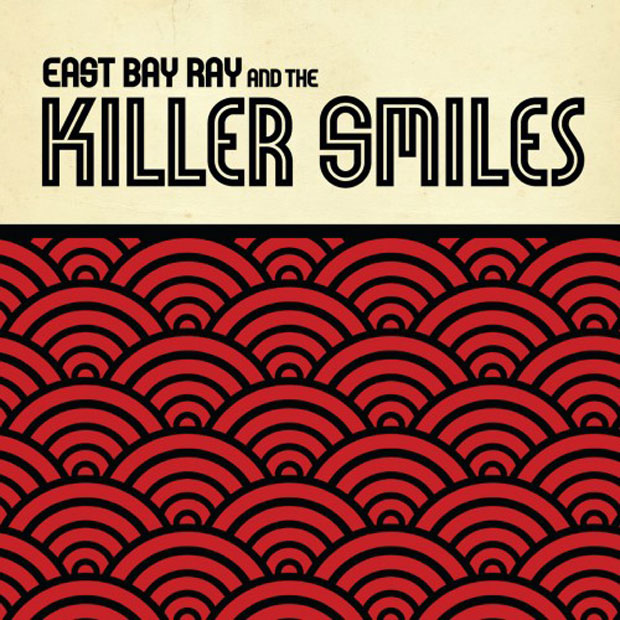
“This particular way of concluding Bohemian Rhapsody will be hard to beat!” Brian May with Benson Boone, Green Day with the Go-Gos, and Lady Gaga rocking a Suhr – Coachella’s first weekend delivered the guitar goods
“I was writing songs from eight years old, but once I got a guitar I began to deeply identify with music… building an arsenal of influences”: How Lea Thomas uses guitars her dad built to conjure a magic synthesis of folk, pop and the ethereal









